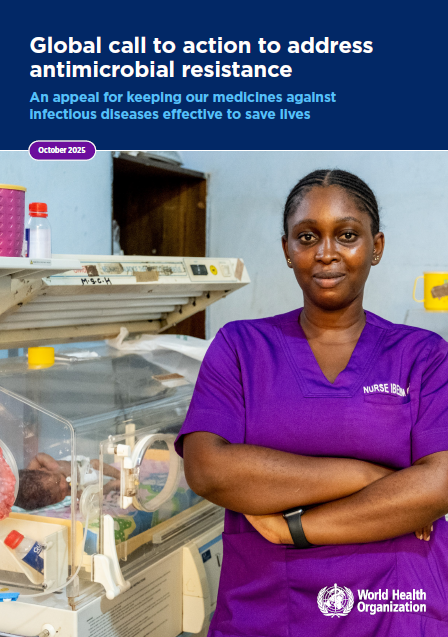Global call to action to address antimicrobial resistance
An appeal for keeping our medicines against infectious diseases effective to save lives

Overview
Antimicrobial resistance (AMR) is one of the greatest global health threats of our time, undermining our ability to treat infections and deliver safe medical care. Without urgent action, drug-resistant infections could claim 39 million lives by 2050 and impose an annual economic burden of up to US$ 412 billion, disproportionately affecting low-resource settings.
Since adoption of the Global Action Plan on AMR in 2015, notable progress has been achieved: 178 countries have developed national action plans, over 100 report data through the Global Antimicrobial Resistance and Use Surveillance System (GLASS), and more than half meet WHO’s targets on proportional antibiotic use. As the United Nations agency responsible for health, WHO is uniquely positioned to set standards, coordinate multisectoral responses and track progress in accordance with its global mandate.
This Global Call to Action outlines WHO’s strategic and operational priorities for meeting the targets set in the political declaration of the United Nations General Assembly High-level Meeting on AMR in 2024, including reducing the number of AMR-related deaths by 10% by 2030, extending testing capacity for GLASS-listed pathogens to 80% of countries, and ensuring that 70% of antibiotics used are in the WHO “Access” category. It calls on Member States, donors and partners to strengthen coordinated action, increase efficiency, help to secure US$ 85 million per biennium for WHO’s work on AMR and accelerate the global multisectoral response to AMR. AMR is not a future problem – it is an urgent crisis that requires immediate action. With decisive, collective action, we can preserve the effectiveness of life-saving medicines and protect future generations.
